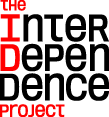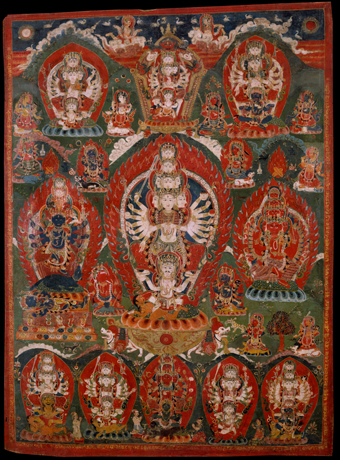
Theme: Action
In this week’s podcast recording, meditation leader Tracy Cochran draws inspiration from Vajrayogini, the embodiment of complete Buddhahood in female form. Her infinite wisdom is only attainable through deep reflection and aspiration””an inspiration during times of hardship.
About the Mindfulness Meditation Podcast
The Rubin Museum of Art presents a weekly meditation session led by a prominent meditation teacher from the New York area, with each session focusing on a specific work of art. This podcast is recorded in front of a live audience, and includes an opening talk, a 20-minute sitting session, and a closing discussion. The guided meditation begins at 14:20.
If you would like to attend Mindfulness Meditation sessions in person or learn more, please visit our website at RubinMuseum.org/meditation.
This program is supported with thanks to our presenting partners Sharon Salzberg, the Interdependence Project and Parabola Magazine.


Related Artwork

The white goddess Siddha Lakshmi is a wrathful manifestation of the Hindu deity Durga. Associated with the Secret Black Mother tradition of the deity Guhya Kali, Siddha Lakshmi is revered for her ability to turn back negative forces and malicious spirits. Though she brandishes weapons in her many arms, she has a peaceful expression on her face. She is supported by her consort, Shiva, who holds her feet in his hands.
Like many Nepalese paintings, this one features a dense composition that fills the entire canvas with deities, animals, and floral motifs. It also bears an inscription across the bottom that indicates its date of creation, in 1796. Siddha Lakshmi was the patron deity of the Malla dynasty, which ruled the Kathmandu Valley from the 13th to 18th century.
About the Speaker

Tracy Cochran is editorial director of Parabola, a quarterly magazine that for forty years has drawn on the world’s cultural and wisdom traditions to explore the questions that all humans share. She has been a student of meditation and spiritual practices for decades and teaches mindfulness meditation and mindful writing at New York Insight Meditation Center and throughout the greater New York area. In addition to Parabola, her writing has appeared in The New York Times, Psychology Today, O Magazine, New York Magazine, the Boston Review, and many other publications and anthologies. For more information please visit tracycochran.org.
